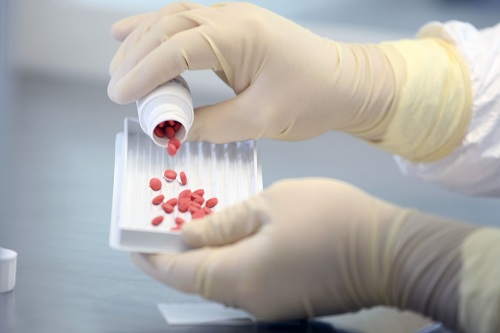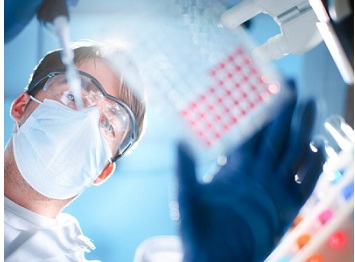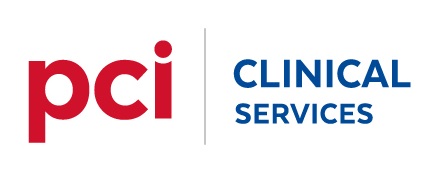In recent years, the pharmaceutical industry has seen tremendous changes in the way it is expected to deliver new drugs to market: being under increasing pressure to expedite the development of new therapies,to decrease clinical study duration, and to drive new treatments through their clinical phases as quickly, safely and cost-efficiently as possible.
Such changes have required the industry to re-evaluate and rethink long-standing approaches to drug development and commercialization, with attention being recalibrated on the ultimate goal; making it easier for the patient to reach improved health outcomes. This perspective is underpinned by the recognition that what is best for the patient will lead to beneficial outcomes for all stakeholders, including the drug company, the healthcare provider, and the supporting community of associated service providers.
This rapidly developing environment means innovation and cost-efficiency in drug development is crucial; costs of research and development (R&D) are growing aggressively with an average investment of US $1.7 billion required to successfully initiate a new drug to market1 and an average 12 years to bring a new molecule from laboratory to approval. Furthermore, approximately only 1 in 5,000 candidates entering preclinical testing make it to market2.

Specifically for progression of pipeline candidates entering Phase I Clinical study, a recent study from the Biotechnology Innovation Organization (BIO) noted that from 2006 to 2015, the overall likelihood of approval from Phase 1 for all drug candidates was 9.6 per cent, and 11.9 per cent for all indications other than cancer.
AstraZeneca reported a success rate closer to five per cent. In the highly desired oncology space, the success rate is a striking, with an abysmal 3.4 per cent success rate3. Recent success with immune-oncology therapies has increased the prospects for oncology specifically.
The inefficiencies of drug development and pipeline success, coupled with incentives for special designations from FDA and EMEA, have driven the pharmaceutical industry to focus on rare diseases and unmet needs, thereby increasing success factors. Rare diseases are defined as affecting less than 200,000 patients in the US at any given time. The same BIO study identified a success rate of 25.3 per cent of candidates for rare disease drug candidates4 .In 2016, rare disease indications accounted for 41 per cent of FDA approvals. Many have argued that this rare disease focus is not a sustainable model for the industry, both for the overall number of target diseases as well as sustaining an economic model of commercial revenue driving R&D expenditures.
The overall impact of increasing drug development costs, continually lengthening development timelines, and trend towards low probabilities for success has fostered an industry strategy of ‘kill it fast’. Speed is essential in establishing feedback for in-human studies, quickly identifying critical and measurable factors that help provide a framework for either advancing or ‘killing’ viable drug candidates in human treatment, thereby minimizing total cost and resource expenditures and advancing only the most viable treatments.
In the past, pharmaceutical companies have competed on the grounds of product innovation. Taking into account the high cost of R&D coupled with the economic and political pressures for better end product pricing, finding ways to reduce overall costs becomes critical. But it is not just cost which is at the forefront of development – the size, timescales and complexity of clinical trials are all putting pressure on the industry to shorten the drug development process.
R&D within the industry has the potential to transform patient care across a wide range of diseases through the use of an ever-increasing range of new chemical entities (NCEs). Since the supply and cost of these new chemical entities are of high value, the importance of accelerating the supply of drug product into the clinic for initial Phase I, first-in-man clinical trials becomes crucial.
These changes have shifted the industry’s focus towards developing quality drug candidates and supporting them through clinical development as quickly,efficiently and cost-effectively as possible, delivering unparalleled speed-to-study for their compounds. As such pharmaceutical companies are continually looking for alternative and innovative treatment methods and new markets to support these requirements.
According to a Frost & Sullivan report5 , Asia-Pacific offers an attractive market for clinical trials, with more than50 percent of global clinical trials having treatment sites in the region. Sponsor companies are attracted to Asia-Pacific because of the vast availability of trial participants, offering a pool of about four billion people, with more than 1.8 billion in easily accessible urban areas.
Within the region, Australia is one of the most mature markets in Asia-Pacific for conducting clinical trials. The Australia drug sector invests more than AUD $1 billion every year into research and development, with investment in Phase I studies in the country alone having a conservative estimate of AUD $50 million6 . Phase I Clinical trial activity in Australia recorded a 17.2 per cent growth in volume from 2012-2015, compared with 1.8 per cent globally7 .
Australia also has many advantages that help make it a destination of choice for the conduct of early phase clinical trials, which should be taken into consideration.
Well-regarded internationally for its world-class infrastructure and medical facilities, highly skilled healthcare professionals and leading research institutes, Australia is also recognized increasingly as the Phase I destination of choice, with more than 50 percent growth in first in human trials (FIHT) between 2010 and 2015, and more than1,500 clinical trials of all phases carried out each year. This upsurge is a true reflection of the proven excellence and performance of the clinical trial institutions in Australia which are greatly supported by the highly favorable regulatory and business environment.The Australian Government is also committed to supporting and improving the clinical trial environment and demonstrates this with considerable investment to ensure Australia remains a key contributor to trial success for global pharmaceutical companies.
Before commencing a trial in Australia,it is important to note that all trials must have an Australian ‘local sponsor’ whose role is to ensure that the clinical trial is being conducted in accordance with internationally recognised standards of Good Clinical Practice (GCP). The local sponsor is also responsible for liaising with Australian governance bodies in relation to the trial. This sponsor can be an individual, an organisation or a pharmaceutical company but they must reside in Australia and be willing to take on this role for the duration of the clinical trial.
Once a local sponsor is assigned there are a number of key advantages in considering Australia as part of your clinical trial:
• Speed
- Highly efficient regulatory and ethical pathway
• Quality
- Internationally recognised standards
- Diverse, willing and informed participants
• Cost
- Savings in time and cost
- Government investment and support (R&D tax incentives)
Speed
Highly efficient regulatory and ethical pathway
Australia has an extremely pragmatic approach to the regulatory pathway for its clinical trials. Most trials in Australia are conducted under the Clinical Trial Notification (CTN) Scheme. Under this scheme, research proposals are submitted to Human Research Ethics Committees (HREC) and not directly to the Therapeutic Goods Regulator (TGA), which is simply notified of the trial. The HREC will then assume the primary review responsibility for the ethical and scientific review.
This process significantly reduces the regulatory challenges associated with the trial application and approval and the usual review cycle will usually take only four to eight weeks. This is based on the submission of a protocol, investigator brochure and if required the submission of an independent toxicology report. This expedited process is fast and efficient, reduces unnecessary duplication of data and costly preparation of extensive applications, ensuring research can commence much sooner than in other jurisdictions.
Quality
 Internationally recognised standards
Internationally recognised standards
Australia adheres to the highest level of Good Clinical Practice (GCP) and has a strong reputation for the quality of its medical research and trained clinical workforce. The Australian Therapeutical Drugs Act 1989 dictates that all trials conducted in Australia must be carried out in accordance with the International Standards of Conduct for clinical trials developed by the International Conference on Healthcare (ICH) and the International Organisation for Standardisation (ISO). As a result of these guidelines, Australian clinical research quality can be wholly relied upon and are viewed with confidence by international regulatory authorities including the US Food and Drug Administration (FDA) and the European Medicines Agency (EMA).
Diverse, willing and informed participants
Australia is a multicultural country with a diverse population – which is ideal for meeting the varying recruitment needs for a wide variety of trial indications. An Australian national survey conducted in 2012 investigated proposed candidates’ attitude towards clinical trials and revealed that the vast majority of survey respondents were fully aware of the concept of clinical trials and that there was a significant willingness to participate in them .
Australian treatment process and regimes are also extremely similar to those of other developed populations such as the US, Canada and a number of European countries. This, coupled with the country’s population diversity, enables recruitment of similar patient populations ensuring similar treatment groups.
Cost
Savings in time and cost (including R&D tax incentives)
The Australian Government is committed to supporting the growth and development of clinical trials in the country. The Government is continually assessing and conducting a number of significant projects which will address barriers to conducting trials in Australia and continue to encourage population involvement.
 The Government’s R&D tax incentive scheme is a self-assessment program is jointly managed by the Australian Taxation Office (ATO) and Aus Industry. This system provides a globally competitive tax incentive for conducting R&D activities in Australia and effectively functions as a government award.
The Government’s R&D tax incentive scheme is a self-assessment program is jointly managed by the Australian Taxation Office (ATO) and Aus Industry. This system provides a globally competitive tax incentive for conducting R&D activities in Australia and effectively functions as a government award.
This generous incentive allows companies which undertake certain ‘core’ R&D activities in Australia between 38.5% and 43.5% refundable tax credit on eligible expenditure (depending on a company’s aggregated turnover). Early phase Clinical trials (Phase I/II and III) are generally considered as ‘core’ activities and as such qualify in the main for the purpose of this incentive. Other benefits of the R&D initiative include:
- Provision for access by international companies – indeed, there is no requirement for the company conducting the trial to be resident or hold intellectual property in Australia
- Domestic tax exemption – there is no requirement for the company to pay any net Australian tax to be eligible for the credit
- Expenditure support – companies may be able to obtain an advanced overseas finding which allows them to claim expenditure on R&D activities which are conducted overseas but which have a significant scientific link to Australian activities.
Alongside the R&D incentive program the Australian Government has also introduced a number of other initiatives to support clinical trials in their country and ultimately encourage patient recruitment.
The creation of a dedicated website and information guides provide a comprehensive overview of the clinical trial process – content is designed to aid potential participants understand the risks as well as benefits of participating in a clinical trial in Australia, ultimately raising consumer awareness and helping to increase enrolment.
The recent introduction of a legislative scheme which allows for accelerated access to new medicines, prior to the completion of the clinical trials data collection, has seen significant results. This initiative can be applied where clinical trial evidence has demonstrated likelihood that the recipient will receive substantial benefit from treatment with the drug, ensuring speed-to-treatment and swifter outcomes for its patient populations.
Further initiatives include the desire to remove uncertainty in costs of conducting clinical trials in Australia. The Australian Office of the National Health along with the National Health and Medical Research Council (NHMRC) has set out the typical costs involved in the activities of a clinical trial in order to provide and authoritative reference for trial companies and the health provider conducting the trial providing assistance to overseas companies in negotiations with Australian clinical trial providers.
Reasons to outsource to Australia vary by country and by company. Some companies are driven by fast approval times with lower costs and comparable quality; others seek quicker and more transparent approval processes, with results that will be acceptable to internationally regulatory authorities; while for smaller biotech companies, the refundable R&D tax incentive is lucrative by world standards and may play a significant part in lowering their cost of innovation and R&D.
Whatever the reason for choosing Australia, the country’s clinical trial process allows flexibility without compromising quality;avoids duplication of processes; and ultimately saves the trial sponsors both time and money. This all combined with the superior scientific talent and excellent medical infrastructure will continue to make Australia a preferred destination for early phase clinical trials.
With an established presence in Australia, PCI Clinical Services has extensive experience in executing effective clinical studies in the country. As a leading global biopharmaceutical outsourcing services provider, PCI has developed specialist knowledge of the regulatory and investigational product management requirements alongside the specific requirements for importing, manufacturing, compounding and labelling product for Australian clinical studies, compared to US and EU requirements.
Reference
1.Forbes 2nd Oct 2012: Matthew Herpers 2012 ’The truly staggering cost of inventing new drugs.’
2. www.medicinenet.com – Drug Approvals – From Invention to Market … A 12- Year Trip
3. https://biopharmconsortium.com/2018/03/14/mit-study-finds-that-the-probability-of-clinical-trial-success-is-nearly-40-higher-than-previously-thought/
4. http://www.raredr.com/news/orphan-approval; Clinical Development Success Rates 2006-2015, BIO
5. Australia: Preferred Destination for Early Phase Clinical Trials, A Frost & Sullivan White Paper, https://ww2.frost.com/files/6514/7374/3781/Novotech_WP_20160701_v2.1.pdf
6. https://australianclinicaltrials.com/the-australian-tour-phase-i-clinical-trial-units/
7. https://www.austrade.gov.au/…/2814/Clincal-Trials-Capability-Report.pdf.aspx
8.Five reasons to conduct clinical trials in Australia, http://www.corrs.com.au/thinking/insights/five-reasons-to-conduct-clinical-trials-in-australia/

















![Sirio Launches Global Research Institute for Longevity Studies [SIA]](https://www.worldpharmatoday.com/wp-content/uploads/2019/09/Sirio-218x150.jpg)



